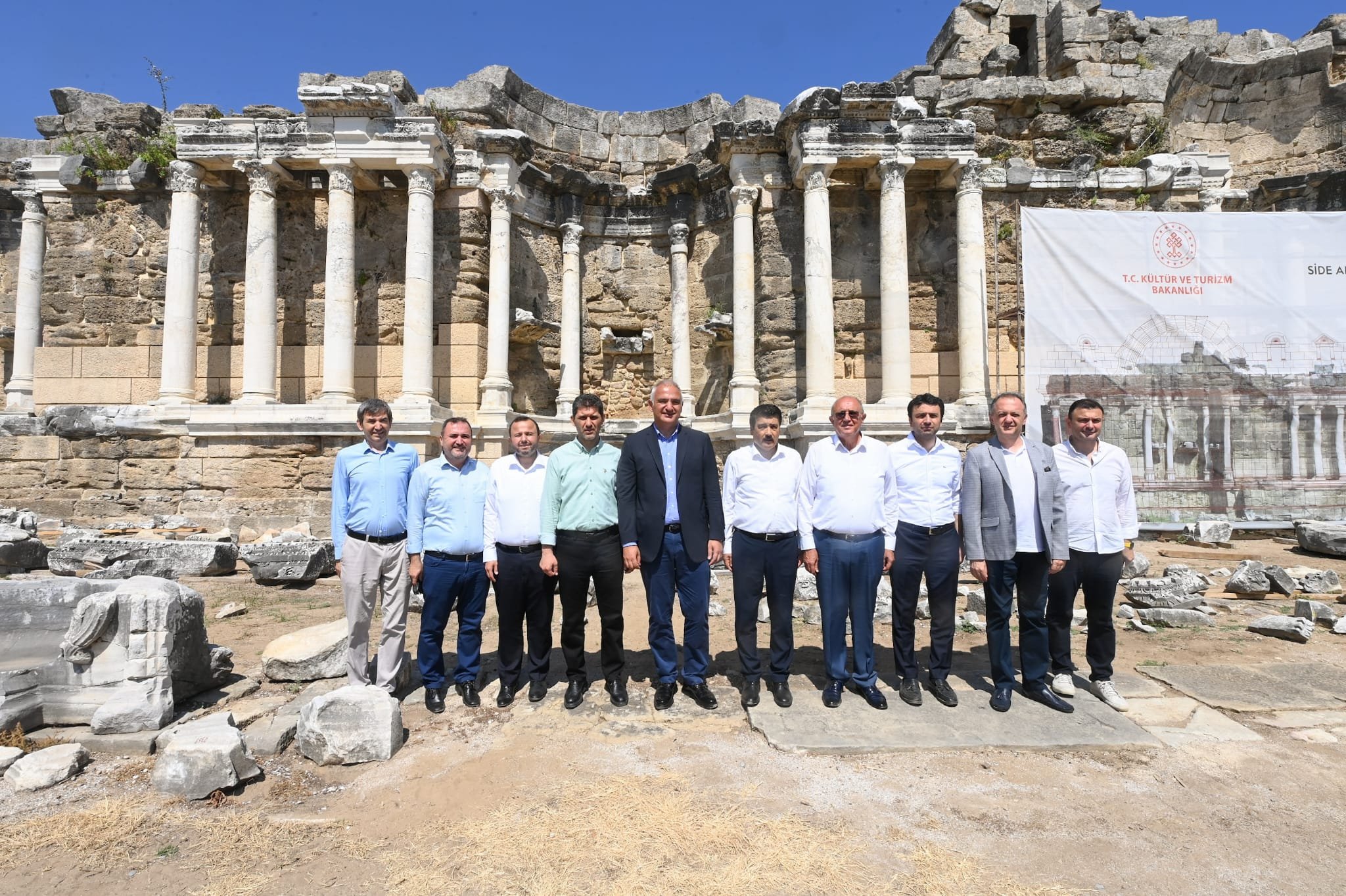© Turkuvaz Haberleşme ve Yayıncılık 2026
The total number of archaeological excavations and studies in Türkiye is projected to reach 750 by the end of 2023, the Ministry of Culture and Tourism announced Saturday.
This reflects a significant increase in efforts to explore and understand the country's cultural heritage.
It said in a statement that it would include a new dig in the central province of Konya for prehistoric and ancient remnants from the Neolithic to the Iron Age in the Gökhöyük area, set to begin in the coming days.
Long-term excavations will primarily seek information on the last inhabitants of a settlement in the area.
Excavations, which were halted for some time, at the ancient city of Sobesos in Ürgup district of Nevşehir province, will also resume this year.
Restoration-focused works will continue in areas such as Laodicea and Tripolis in Denizli province; Olympos, Patara, Perge, and Side in Antalya province; Stratonikeia, Euromos, Knidos, and Becin Castle in Mugla province and Silifke Castle and Uzuncaburç in Mersin.
The Neolithic Age Research Project, initiated as part of the Taştepeler ("Stonehills") Project in Şanlıurfa province and carried out in 12 areas, will continue with the participation of scientists from various countries.
Besides excavations in ancient cities, restoration will be carried out simultaneously to revive the cities.
The number of archaeological excavations and research conducted by scientific teams and museum directorates will reach 750 by the end of the year.

Of the approximately 240 scientific excavation works planned for 2023, led by Turkish and foreign scientists and museum directorates, nearly all have started this month.
Approximately TL 200 million ($7.6 million) in funding has been allocated by the ministry for use in an archaeological excavation. The funding support will exceed TL 500 million ($19.1 million) by the end of the year.
This year, 144 archaeological excavations and restoration works, lasting 12 months, will be carried out. Additionally, close to 140 archaeological surface surveys will be conducted by domestic and foreign scientists.
Throughout the country, 39 archaeological excavations and surface surveys will be led by foreign scientists with the participation of Turkish scientists.
Over 250 foreign scientists from over 20 countries will participate in excavations and surface surveys this year as part of scientific collaboration.
Under the newly started Anatolian Rock Monuments and Inscriptions Project, rock monuments and inscriptions will be cataloged and recorded with 3D scanning.
Efforts to catalog, 3D scan, and document cemeteries, tombstones, inscriptions, and epitaphs from the Turkish-Islamic period in Türkiye will continue.
